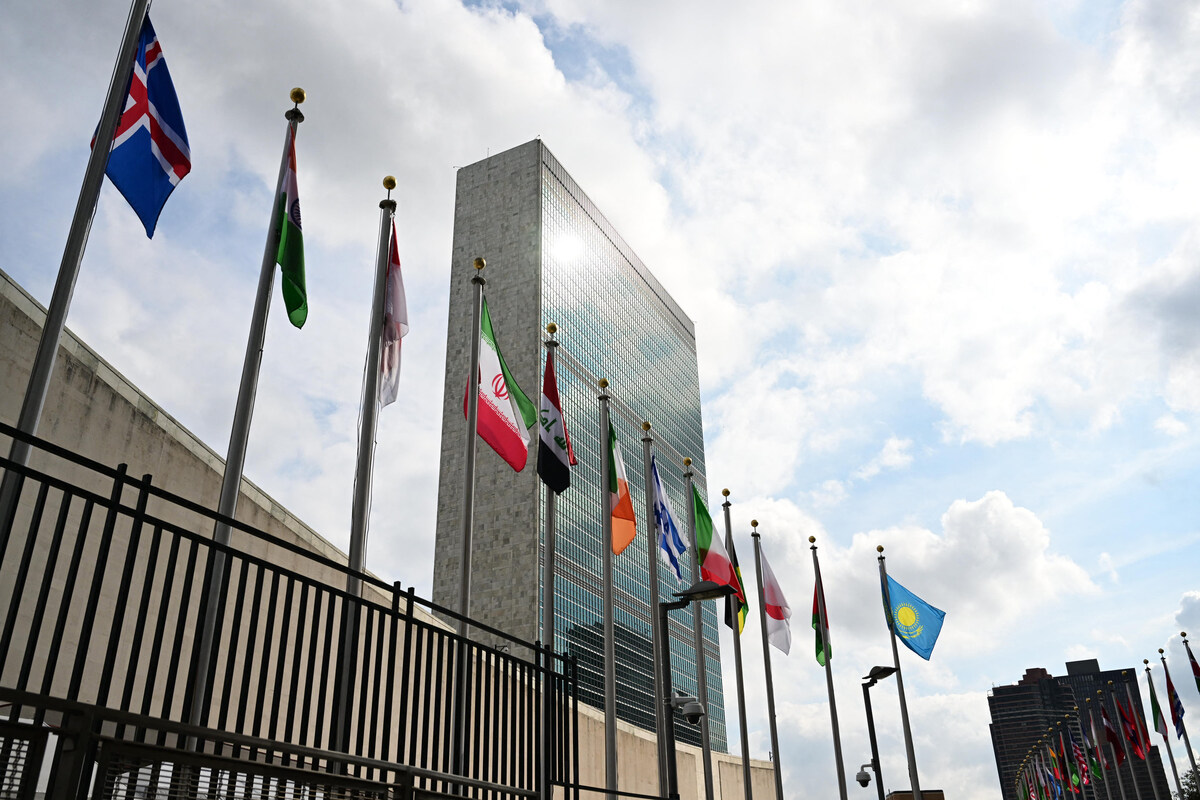United Nations – The United States on Friday vetoed a UN Security Council resolution that would have called for an immediate ceasefire in the intense fighting between Israel and Hamas in Gaza.
Washington dashed a growing clamor for an immediate ceasefire that had been led by UN chief Antonio Guterres and Arab nations.
American envoy Robert Wood said the resolution was “divorced from reality” and “would have not moved the needle forward on the ground.”
He attacked the resolution’s sponsors, criticizing them for rushing it through and leaving the call for an unconditional ceasefire unchanged.
“This resolution still contains a call for an unconditional ceasefire… it would leave Hamas in place able to repeat what it did on October 7,” Wood said.
Guterres had convened an emergency meeting of the UN Security Council after weeks of fighting left more than 17,487 people dead in Gaza, mostly women and children, according to the latest toll from the health ministry in Hamas-run Gaza.
“The United Arab Emirates is deeply disappointed,” said the representative of the UAE which had sponsored the resolution.
“Regrettably… this council is unable to demand a humanitarian ceasefire.”
As a permanent Security Council member, Washington can veto any resolution, while Britain, also a member, abstained on the vote, and the 13 other members voted in favor.
“If you support it (this war) you are supporting crimes against humanity,” said the Palestinian representative to the UN Riyad Mansour. “This is a terrible day for the Security Council.”
Israel praised Washington’s veto, with the country’s UN envoy Gilad Erdan thanking “the United States and President Biden for standing firmly by our side.”
Ahead of the vote, Guterres had said that “the brutality perpetrated by Hamas can never justify the collective punishment of the Palestinian people.”
‘Complicit’ in slaughter
Vowing to destroy the Islamist movement, Israel has relentlessly bombarded Gaza and sent in tanks and ground troops since the war began on October 7 with unprecedented attacks by Hamas on southern Israel.
Those attacks left 1,200 people dead, Israel says.
Earlier this week, Israel called on the UN to investigate one aspect of the attack — alleged sexual violence by Hamas fighters against Israeli women.
“I unreservedly condemn those attacks. I am appalled by the reports of sexual violence,” Guterres said ahead of the vote.
“There is no possible justification for deliberately killing some 1,200 people, including 33 children, injuring thousands more and taking hundreds of hostages.”
Guterres deployed rarely-used Article 99 of the UN Charter to bring to the council’s attention “any matter which in his opinion may threaten the maintenance of international peace and security.”
No one in his job had done this in decades.
Guterres had sought a “humanitarian ceasefire” to prevent “a catastrophe with potentially irreversible implications for Palestinians” and the entire Middle East.
Russia’s deputy envoy to the UN, Dmitry Polyanskiy, said “our colleagues from the USA have literally before our eyes issued a death sentence to thousands, if not tens of thousands, more civilians in Palestine.”
Medecins Sans Frontiers said Security Council inaction made the body “complicit in the ongoing slaughter” while Human Rights Watch said “by continuing to provide Israel with weapons and diplomatic cover… the US risks complicity in war crimes.”
Several previous attempts to pass a resolution calling for a ceasefire were vetoed.
Vast areas of Gaza have been reduced to a wasteland. The United Nations says about 80 percent of the population has been displaced, facing shortages of food, fuel, water and medicine, along with the threat of disease.
“International humanitarian law includes the duty to protect civilians,” Guterres said.
His spokesman Stephane Dujarric said Guterres “remains determined to push for a humanitarian ceasefire.”
Four draft resolutions had already been rejected in the weeks following October 7, for lack of sufficient backing, or because of Russian, Chinese or US vetoes.

